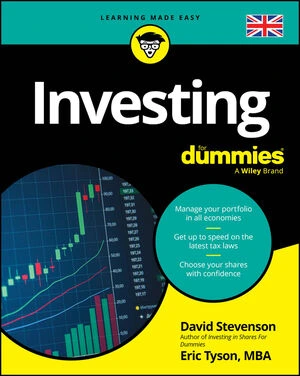The 10 most important points about share investing
When you decide to invest in shares, making the right decisions is crucial: The ten most important points you need to know about share investing are listed here:
- You’re not buying shares; you’re buying a company.
- The only reason you buy a share is because the company is making a profit (at some stage, in the case of many technology companies).
- A single share, or shares in general, should never be 100 percent of your assets.
- In some cases, such as a severe bear market, shares aren’t a good investment at all.
- A share’s price is dependent on the company, which in turn is dependent on its wider market environment, which includes its customer base, its industry, the general economy, and politics.
- Your common sense and logic can be just as important in choosing a good share as the advice of any investment expert.
- Always be self-critical. Mistakes are a useful learning exercise in investing. Just try not to make too many with too much money.
- If you have no idea about the prospects of a company, and sometimes even if you think you do, always use stop-loss orders.
- Don’t rush to take profits and be brutally self-disciplined in cutting your losses.
- If the idea of finding a short list of companies to put in a diversified portfolio fills you with terror, then invest instead in a fund such as an investment trust or exchange traded fund (ETF).
Reading list for investors in the UK
Doing your research and knowing your subject before investing in shares is crucial. Here’s the literature that should be on your bedside table when investing in shares.
-
The company’s annual report
-
Standard & Poor’s Share Guide
-
The Financial Times
Looking at four important parts of a company’s fundamentals
Knowing what aspects of a company to look at is crucial before you invest in shares. Cut through the jargon – keep the following in mind when inspecting a company’s performance.
- Earnings: This number should growing consistently year on year through the business cycle.
- Sales: This number should be higher than the year before.
- Debt: This number should be lower than or about the same as the year before, unless there’s a specific reason to load up on the debt (such as a takeover). It should also be lower than the company’s assets.
- Equity: This number, otherwise known as the book value or net asset value, should be higher than the year before.
Knowing the best financial measures before investing
When investing in shares, you need to know how a company is doing. Certain financial measures can help you more than others when analyzing a company’s performance. Here are five of the best:
Price-to-Earnings ratio (PE): For large-cap shares, the ratio should be under 40. For all shares – including growth, small cap, and speculative issues – it shouldn’t exceed 60, unless you think the future growth prospects in the medium term are amazing.
- Dividends: If the business pays a dividend, it should ideally be growing year on year
- Return on equity (ROE): This should be growing on a year-on-year basis.
- Earnings growth: Earnings should be at least 10 percent higher than the year before. This rate should be maintained over several years.
- Debt-to-asset ratio: There needs to be a very good reason why this ratio is above 100 per cent. If not, avoid the company.
9 Events that could spell trouble for your share
Economic, fiscal and political changes can sometimes jeopardize your investment in shares. The following list of events should set alarm bells ringing, so stay alert and be attuned to
- A bear market
- Increasing interest rates, which can spell trouble for heavily indebted companies
- Heavy insider selling by directors
- Lots of external investors building up a heavy short position
- A big and growing pensions deficit for the business pension scheme
- Questions about the sustainability of the sector (say, oil and energy) long term because of climate change. Think through how technological disruption can destroy whole sectors long term, slowly but surely eliminating the customer base
- Pending government regulatory intervention that could reduce long-term profit margins
- National or international conflict, such as war or acts of terrorism






